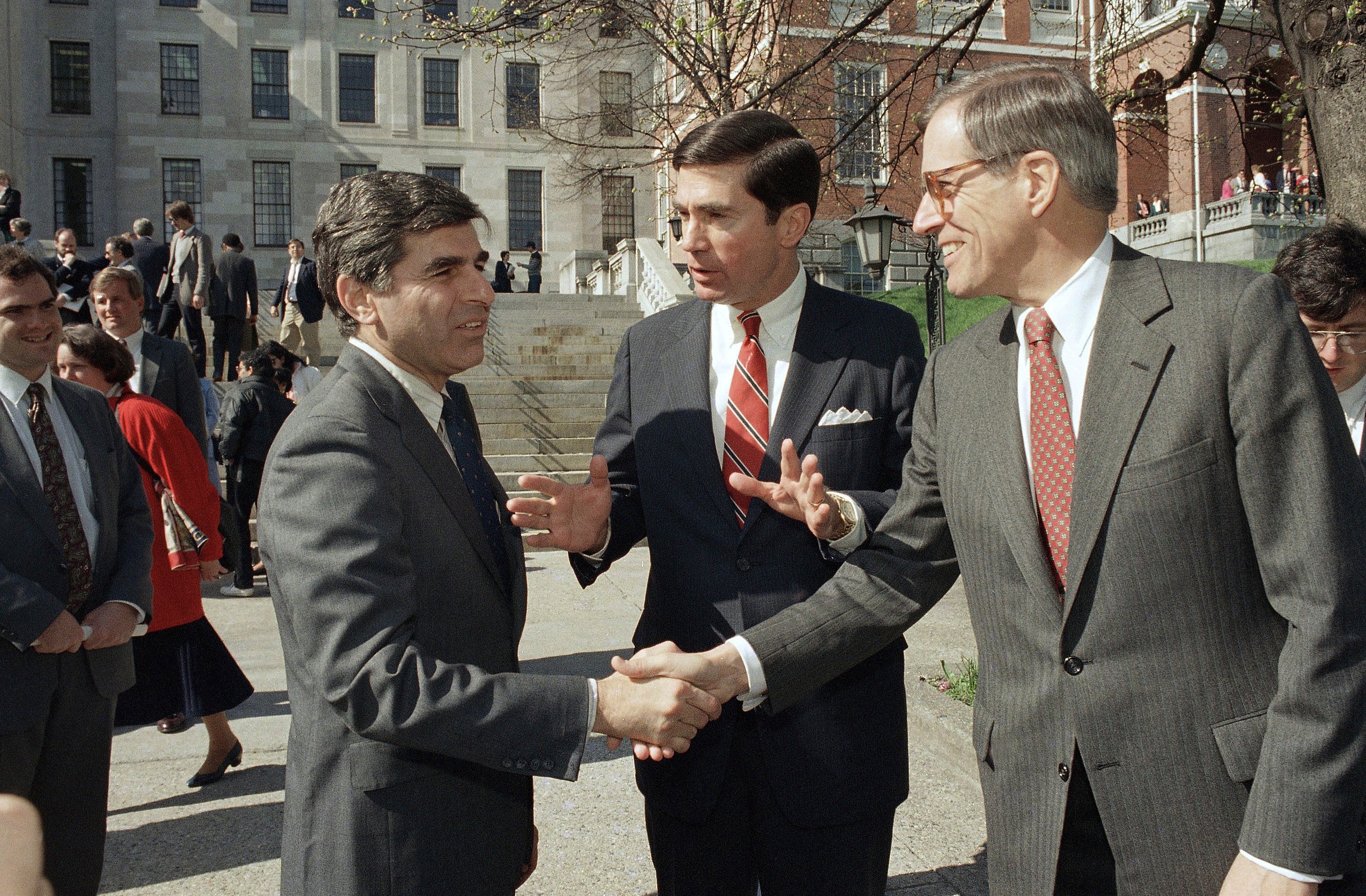Pete du Pont: Former Delaware governor and presidential hopeful dies after long illness
Former governor transformed state over three terms before White House run

Pete du Pont, two-term governor of Delaware and part of one of America’s wealthy dynasties, has died at the age of 86 at his home in Wilmington.
He passed away on Saturday after a long illness, according to his former chief of staff, Robert Perkins.
Mr du Pont, born Pierre S du Pont IV, broke with family tradition in seeking public office rather than remaining in the family’s chemical empire.
After one term in the Delaware state House and three terms in Congress for the Republican Party, du Pont was elected governor in 1976 and set about working to restore the state’s financial stability.
However, in seeking national office, his privileged background turned out to be a handicap in the party’s presidential primary.
“I was born with a well-known name and genuine opportunity. I hope I have lived up to both,” Mr du Pont said in announcing his longshot presidential bid in September 1986.
As a little-known governor of a small state, he had to distinguish himself from a Republican field full of high-profile party figures such as then-Vice President George HW Bush and Senator Bob Dole.
He did so by taking positions more conservative than those of then-President Ronald Reagan, including mandatory drug testing of high school students, requiring people on welfare to work, and doing away with farm subsidies.
Mr du Pont stood his ground and insisted his was a candidacy of ideas, offering no apologies.
Mr Bush dismissed as “nutty” Mr du Pont’s idea to create another form of Social Security modelled on private individual retirement accounts. That concept later became a mainstream Republican proposal. As did a proposal for school choice in which public funds follow individual children to any school they choose, public or private.
He ended up withdrawing from the race in February 1988 after poor results in both the Iowa caucuses and the New Hampshire primary.
“Before you run for president, you ought to decide why you want to be president and what you do if you get there,” Mr du Pont once said. “The only thing that would be worth being in that job is to try to change the things that need to be changed.”

In an appearance at the Hotel Du Pont in downtown Wilmington, built by his family, he announced he was abandoning his campaign for president, though praised an electoral process that gave a shot at the White House to a former small-state governor with unorthodox ideas.
It was in the same hotel that fellow Delaware resident President Joe Biden launched his Senate campaign in 1972 and made many appearances in his successful 2020 presidential campaign, including announcing Kamala Harris as his running mate.
Mr du Pont left the family’s eponymous chemical empire aged 34 declaring that he “got a little bored” by the prospect of the corporate ladder.
In 1968, he ran unopposed for a new seat in the Delaware House of Representatives which was a part-time post that allowed him to continue in the business for another two years.
He quit the firm in 1970 and beat a Democratic labour leader for the state’s at-large seat in Congress. He easily won two further terms on Capitol Hill.
With Delaware deep in debt and suffering from high unemployment and a shrinking tax base, Mr du Pont beat the Democratic incumbent to become governor in 1976 with a sizeable margin.
A troubled start in which demands for spending cuts and tussles with the Democrat-controlled legislature were topped off by a gaffe in which he referred to the average voter as “Joe Six-Pack” earning him the nickname “Champagne Pete”.
Eventually, he and legislative leaders struck a deal for a long-term partnership that changed the face of the state.
Two income-tax cuts were signed into law, as well as a constitutional amendment that limited government spending and future tax increases.
He hired talented professionals for top state posts and brought in generous tax incentives and deregulation to attract new businesses. New laws passed in his second term made the state a centre for the credit card industry and banking, with 30 financial institutions setting up operations in the state, creating more than 43,000 jobs.
Term limits stipulated that he could only serve three terms as governor. He left office in 1985 with approval ratings approaching 90 per cent, a booming state economy, relatively low unemployment, low taxes, and a balanced state budget – even winning the praise of Democrats.
It was assumed that he might challenge incumbent Senator Joe Biden, but instead he chose to shoot for the presidency.
Mr du Pont is survived by his wife of over 60 years, Elise Wood; a daughter and three sons; and 10 grandchildren.
With reporting from The Associated Press
Join our commenting forum
Join thought-provoking conversations, follow other Independent readers and see their replies
Comments
Bookmark popover
Removed from bookmarks